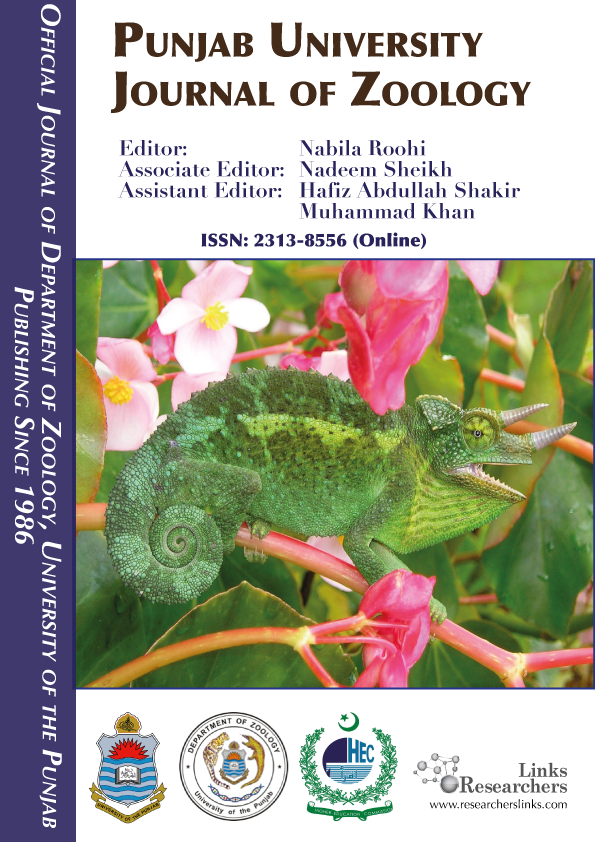Abstract | A total of 320 unsexed broiler chicks were utilized between November 29, 2022, and January 1, 2023, (to investigate the effect of neem leaf powder on some physiological characteristics of broilers exposed to heat stress), these birds were randomly allocated into four treatment groups, The experimental treatments consisted of (T1) a control group without any treatment, and three groups supplemented with neem leaf powder at rates of 200, 400, and 600 mg/kg food, referred to as treatments T2, T3, and T4, respectively. All treatment groups were subjected to heat stress, with a cyclic temperature ranging from 28 to 32 °C. At the age of 14 days, there was a noteworthy reduction (P≤0.05) in the levels of cholesterol T3 and T4 compared to T1. Similarly, at the age of 21 days, there was a decrease in all additional treatments compared to T1. Furthermore, at the age of 35 days, there was a decrease in T2 and T3. At 14 days of age, there was a noteworthy reduction (P≤0.05) in the levels of triglycerides in T1 and T4 compared to T2. Additionally, at 35 days of age, there was a substantial drop in the levels of triglycerides in all supplements compared to T1. At 14 days old, there was a notable reduction (P≤0.05) in glucose levels in all treatment groups compared to T1. Additionally, glucose levels dropped in T3 and T4 at 21 days old. At 14 days of age, there was a statistically significant increase (P≤0.05) in the concentration of glutathione in T3 compared to T1. At the age of 14 days, the addition treatments resulted in a significant decrease (P≤0.05) in the concentration of malondialdehyde compared to T1. Additionally, at the ages of 21 and 35 days, the concentration of malondialdehyde reduced in treatments T3 and T4 compared to T1. At 35 days of age, the concentration of AST showed a substantial rise (P≤0.05) in T3. ALT levels shown a substantial decrease (P≤0.05) across all age groups in the addition treatments when compared to T1. The study demonstrated that the different concentrations of neem leaf powder yielded favorable outcomes, as seen by improvements in both the lipid profile and antioxidant levels.
Novelty Statement | This study is the first one using Neem (Azadirachta indica) Leaf Powder in the Iraq/ Babylon to improve broiler growth under heat stress condition.








